TIZ 9. Relational Ecologies
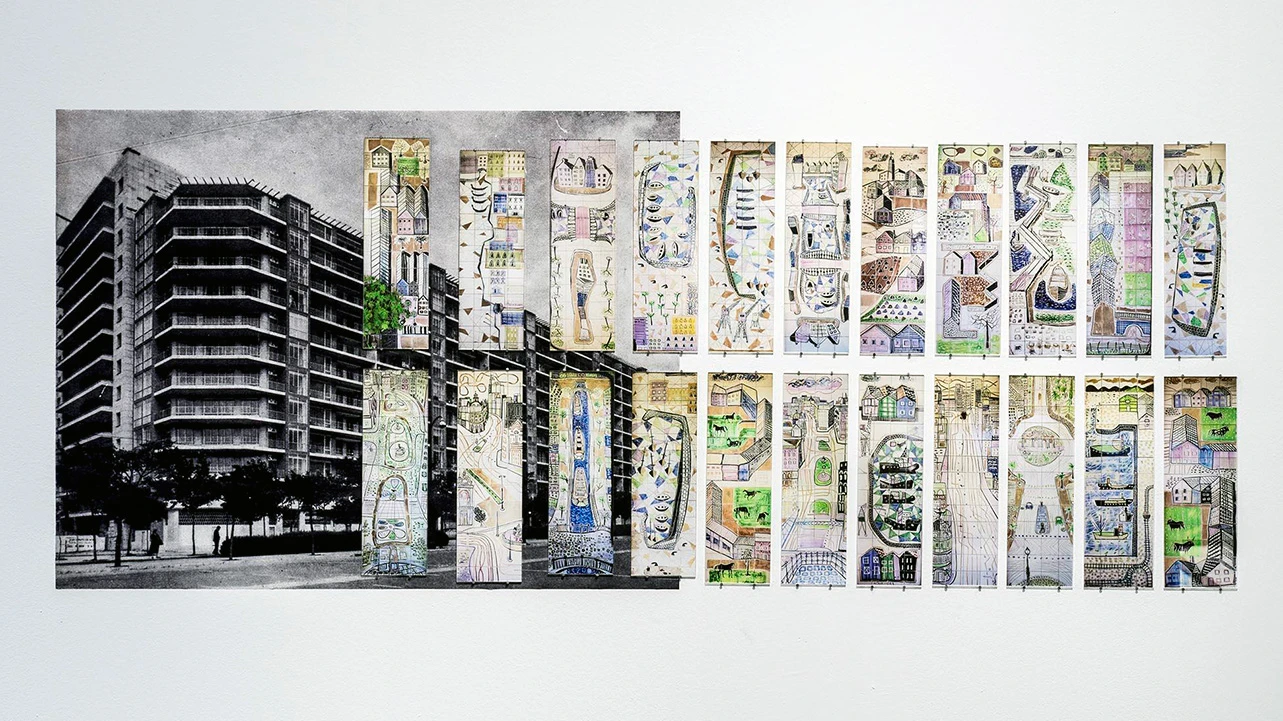
Held on 01 Apr 2023
All forms of life are interdependent, all ecology is relational. Ecological thought is defined though environmental sensibility, where the question around sustainability also encompasses the links between society and nature, questioning the relationships between people, community imaginaries and collective institutions. Thus, a cultural ecology necessitates a relational sense of life as a whole.
The steadily growing awareness of the biophysical limits of the planet entails highly complex understandings of ecosystems as interconnections of living and non-living, human and non-human, past and future elements. From notions of nodes, networks, fabrics and environments, today investigations are carried out around concepts of community understood not as an aggregation of unique elements but as constellations of links, as circulations of ties which self-regulate the production and reproduction of forms of life. Relational ecologies question narratives of human exceptionalism and reveal its colonial and gender-based imaginary: its energy-based sub-conscious, for the separation between ecology and society is established in the dependency on fossil fuels and the techno-military frameworks that administer them.
This TIZ addresses the problem areas that approach ecology from relationality. Interactions, relations of intimacy and mutual support, forms of collective intelligence, shared knowledge, involvement in protesting against climate change and community learning are some of the concepts that define the activities, activations, investigations and accompaniments from April through to July in the Museo.
-
Saturday, 22 April 2023 Nouvel Building, Auditorium 200 and online platform
The Territorial Re-Existences Lab
Encounter with Lavinia Fiori and Libia Grueso
Online platformThe current situation of climate emergency necessitates not only a call for resistance, but also for listening to experiences of re-existence and the activation of past memories of collapse, plundering and extractivism. This activity, organised jointly with Redes por el clima (Networks for Climate) and coordinated by Josimar Castillo, Elisa Fuenzalida and Carmen Haro, puts forward an encounter of local agents with Colombian researchers and activists Lavinia Fiori and Libia Grueso, with the aim of sharing strategic visions in the fight against climate change, the result of prior participatory work by citizen laboratories, social agents and young activists, migrants, and members of the Black Communities Process (PCN) in Colombia.
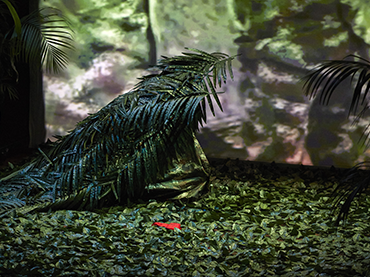
-
Thursday, 27 April 2023
Epiphyte. Pollinating (Con)tact
Bioinspiration and Politics and Poetics of the Future
Epiphyte is a project, nurtured by the cultural association Side Thinkers and directed by Vanesa Viloria, which investigates new forms of facing the eco-social crisis by observing the plant world as a way to learn of other ways of life, community and future. On this occasion, the Museo Reina Sofía welcomes Pollinating (Con)tact, a programme structured around two artistic proposals and two conversations with agents and professionals linked to environmental humanities, artistic creation, science and climate activism. Starting from the hybridisation of languages and disciplines, this activity seeks to move beyond the hegemony of academic language as a medium to transmit knowledge, shining a light on other narratives such as fiction and poetry and focusing on the senses.
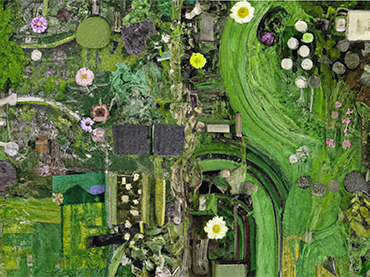
-
Thursday, 4 May 2023 Nouvel Building, Auditorium 200
Ornithology
A Conversation on Music Between Quico Cadaval and Pablo Castaño
This encounter pays tribute to Charlie Parker and Benny Harris’s classic Ornithology, bringing together storyteller Quico Cadaval and jazz saxophonist Pablo Castaño. Cadaval sculpts a freeform story, revealing the experiences and the curiosities of the life, myth and sound persona of Bird, Parker’s nickname, and placing them in dialogue with local music history. Castaño completes Cadaval’s narrations with his sax, reinterpreting musical landscapes of Ornithology and other bebop classics. In a collaboration, both artists set forth an experience comprising oral and musical improvisation with comic, poetic and ironic flourishes.
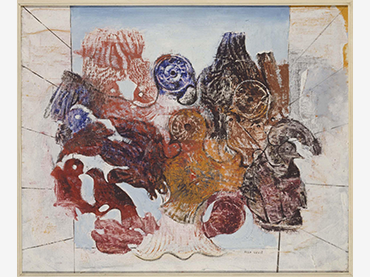
-
Friday, 5, Saturday, 6, and Sunday, 7 May 2023
Utopias and Revolts
Composing Strategies from the Collective
This encounter reflects upon strategies to deal with present-day challenges related to eco-social crises and sustaining life which cannot be reduced to environmental factors and must encompass financial, geopolitical, social and energy causes which run in parallel. Therefore, collectives and associations involved in social movements that include transfeminism, rights (domestic workers, housing, care, sexual rights), the struggles of migrant people, and other movements, are brought together here.
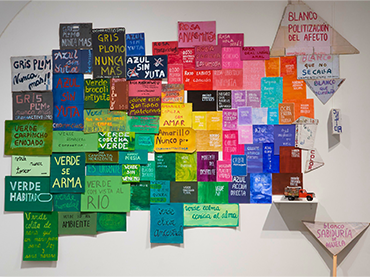
-
Friday, 19, and Saturday, 20 May 2023 Nouvel Building, Auditorium 200 and online platform
An Uncomfortable Proposal
Sociología Ordinaria Encounters #11
Online platformSociología Ordinaria is a transdisciplinary research group that seeks to explore daily knowledge deemed ordinary, superficial or frivolous from a traditional academic and intellectual viewpoint, conducting its investigations and reflections from a relational and sensitive perspective. This eleventh edition of the Sociología Ordinaria Encounters sets out to address discomfort: its frameworks, meanings, sensations, impressions and feelings. By asking how it affects us, discomfort is approached as a political, affective, ethical and aesthetic position and situation, and as a methodological and epistemological stance.
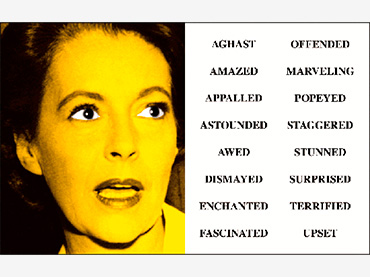
-
Wednesday, 7 June 2023 Nouvel Building, Auditorium 200 and online platform
Shadows of Your Black Memory
A Lecture by Donato Ndongo-Bidyog
Online platformThis lecture sees Equatoguinean writer, intellectual and historian Donato Ndongo-Bidyogo trace a literary journey on the history of Equatorial Guinea, from the era of Spanish colonisation to its independence and subsequent evolution towards and an authoritarian regime and the experience of diaspora. The encounter concludes with a conversation between Ndongo-Bidyogo and journalist and researcher Tania Safura Adam on the absence of public reflections on Black presence in Spain and the dilemmas of post-colonial literary creation.
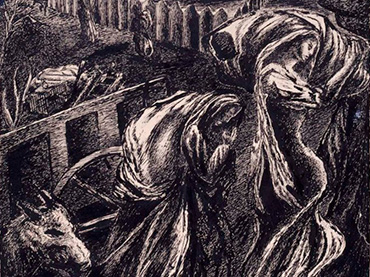
-
Thursday, 8, and Friday, 9 June 2023
Open Chair
Forms of Thinking
Open Chair is a project which stems from a collaboration between Museo Reina Sofía and the Arts Degree at Universitat Oberta de Catalunya (UOC) and aims to annually organise an in-person encounter to intersect and place in dialogue university with museum. It constitutes a space which looks to contribute towards creating an expanded and connected student community of artists and researchers and is linked to the Museo Reina Sofía Study Centre. The public programme starts with the presentation of a selection of six final degree works by students from the UOC’s aforementioned Arts Degree, opening a subsequent discussion to share processes, methodologies, questions and learnings related to artistic practice and reflection. This will be followed by a discussion with artist Clàudia Pagès and concludes with a workshop conducted by Patricia Esquivias and Matteo Locci.

-
Saturday, 10 June 2023
Neighbourhood Picnic
Re-enchanting Lavapiés
The Neighbourhood Picnic is an initiative by the Museo Situado network rooted in the desire to recover the Sabatini Building Garden as a public space given the lack of green spaces for collective enjoyment in Madrid’s Lavapiés neighbourhood. By way of this annual offering, the Picnic becomes at once a political tool and a place of celebration inside the Museo. Under the theme Re-enchanting Lavapiés, which draws inspiration from the notion of “re-enchanting the world” put forward by feminist activist Silvia Federici — highlighting the need to drive forward alternative logics to capitalist development — the aim is to create other forms of resistance: actions for survival which connect us to nature, people and our bodies, allowing us to live full lives.
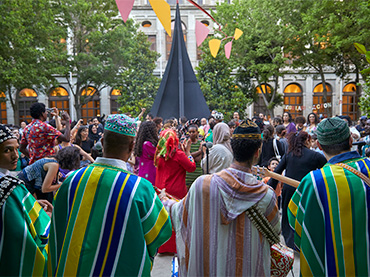
-
Monday, 12 June 2023 Nouvel Building, Auditorium 200 and online platform button
Revolution: Ideas, Imaginary, Memory
A Lecture by Enzo Traverso
Online platformIn his work, distinguished historian and intellectual Enzo Traverso explores the relationship between politics and violence in contemporary history from genealogies of Nazism and Europe’s civil wars. His relational understanding of history as a disputed territory confronts mutations of reactionary thought, summoning the legacy of modern critical traditions from an awareness of their crises. This lecture pivots around Traverso’s new book Revolution. An Intellectual History (Verso, 2021), in which he reflects on the historical imagination of revolution and our political relationships with time as experience and culture.

-
Friday, 16 and Saturday, 17 June 2023 Sabatini Building, Auditorium, southwest Stairwell and Garden
Archipelago 2023
El Hierro Will Once Again Be the Centre of the World
Tickets (16 June)The 2023 edition brought down the curtain on a theoretical and geopolitical journey through the musical mutations of our times which was set in motion in 2017 by José Luis Espejo and then jointly with Rubén Coll from 2018 onwards. The island of El Hierro, halfway between Africa, Europe and South America, is a metaphor for music that circumvents the Western media’s powerful grid, which in turn rules the taste, presence and even fees of musicians from the experimental scene. In this final edition, El Hierro will once again be the centre of the world.
Participants: The Folkloric Ensemble of Sabinosa, DJ Travella and DJ Diaki, Helena Girón and Samuel M. Delgado, and Tenores di Bitti "Mialinu Pira".
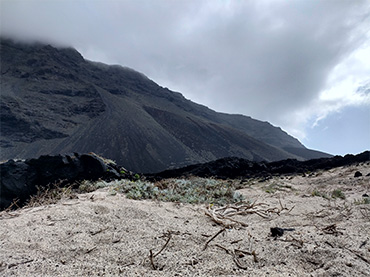
-
Monday, 19, Tuesday, 20, and Wednesday, 21 June 2023
The Aníbal Quijano Chair
Roots, Time and Place
The fifth edition of the Aníbal Quijano Chair features the participation of its director Rita Segato and semiotician Walter Mignolo, setting out, across three sessions, a reflection on the thought and life experience of Peruvian philosopher Aníbal Quijano to enquire about the history of colonial thought and its contemporary need. The complex relationships between raciality, capital and empires, in relation to the place of Iberianness and Latin Americanness in the history of colonialism, are among the concerns of this new edition, which places at its core the community nature of time and the political force of roots.
-
Thursday, 22, and Friday, 23 June 2023 Nouvel Building, Auditorium 200, Lobby and online platform
Conjunctions 0
Encounter around the Study Centre’s Research Fabric
Online platformThe Museo’s Study Centre puts forward two public sessions based on the first edition of Connective Tissue, the Museo Reina Sofía’s Study Programme of Critical Museology, Artistic Research Practices and Cultural Studies. During the encounter, researchers from different Seminars and Critical Nodes share the work developed up to this point, as well as their future projections, while the group of Resident Student Researchers offers a snapshot of their final projects. These sessions are articulated from workshops and round-tables in which all attendees can participate.

-
Tuesday, 11 July 2023
Art and Tourist Imaginaries V
After the Future
This day, the fifth in the series organised with the research group TURICOM, tackles the climate emergency by imagining a world without tourism. The colossal carbon footprint, linked primarily to transport but also to the production of goods and infrastructures, makes tourism one of the main forces of ecological transformation on a global scale. The difficult task of recomposing relations and ecosystems in a hypothetical post-tourism scenario means to identify practices from which to learn, sensibilities to strengthen, and strategies of speculation and reimagination. The issue of architecture runs centrally through them all.
-
Enero - octubre, 2023
Connective Tissue
The Museo Reina Sofía’s Study Programme in Critical Museology, Artistic Research Practices and Cultural Studies
Collective Tissue is the Museo’s training programme for researchers which involves a framework made up of two device types — nine Seminars and eleven Critical Nodes — which put forward different road maps for discussion and academic innovation in key aspects of humanistic and artistic knowledge today, and are complemented with other public activities from the Study Centre. This programme, devised as something that “weaves the weaving of fibres” with its flexible nature and diverse specialisation, speaks to us of an interdependent, relational, situated, and multi-distributed understanding of the workings of a museum in the world and the research conducted within it.
-
Podcast
Art, Animal Rights and Socialism
An Interview with Stephen Eisenman
Listen to podcastStephen Eisenman is an art historian, curator and activist whose work centres on animal rights and environmental causes, as well as the reform of the US prison system. Eisenman’s work also specialises in how the political and the aesthetic relate. His essays The Abu Ghraib Effect (2007) and The Cry of Nature. Art and the Making of Animal Rights (2013) form the starting point of this podcast, which zooms in on his most recent work: an intellectual undertaking in which the study of violence in art leads to the consideration of expanding the notion of rights for every sentient being, not just humans.
Más actividades

Difficulty. Forms and Political Effects of Deviation in Writing and Contemporary Art
23 February – 14 December 2026 – Check programme
Difficulty. Forms and Political Effects of Deviation in Writing and Contemporary Art is a study group aligned towards thinking about how certain contemporary artistic and cultural practices resist the referentiality that dominates the logics of production and the consumption of present-day art. At the centre of this proposal are the concepts of difficulty and deviation, under which it brings together any procedure capable of preventing artistic forms from being absorbed by a meaning that appears previous to and independent from its expression. By ensuring the perceptibility of their languages, difficulty invites us to think of meaning as the effect of a signifying tension; that is, as a productive and creative activity which, from the materiality of art objects, frees aesthetic experience from the representational mandate and those who participate in it from the passiveness associated with tasks of mimesis and decoding.
The economy of the referential norm translates the social logic of capitalism, where insidious forms of capturing subjectivity and meaning operate. In the early 1980s, and adopting a Marxist framework, poet Ron Silliman highlighted how this logic entailed separating language from any mark, gesture, script, form or syntax that might link it to the conditions of its production, rendering it fetichised (as if without a subject) and alienating its users in a use for which they are not responsible. This double dispossession encodes the political strategy of referential objectivity: with no subject and no trace of its own consistency, language is merely an object, that reality in which it disappears.
The political uses of referentiality, more sophisticated today than ever before, sustain the neoliberal-extractivist phase of capitalism that crosses through present-day societies politically, economically and aesthetically. Against them, fugitive artistic practices emerge which, drawing from Black and Queer studies and other subaltern critical positions, reject the objective limits of what exists, invent forms to name what lies outside what has already been named, and return to subjects the capacity to participate in processes of emission and interpretation.
Read from the standpoint of artistic work, the objective capture of referentiality may be called transparency. Viewed from a social contract that reproduces inequality in fixed identity positions, transparent in this objectivity are, precisely, the discourses that maintain the status quo of domination. Opposite the inferno of these discourses, this group aims to collectively explore, through deviant or fugitive works, the paradise of language that Monique Wittig encountered in the estranged practices of literature. For the political potency of difficulty — that is, its contribution to the utopia of a free language among equals — depends on making visible, first, its own deviations; from there, the norm that those deviations transgress; and finally, the narrowness of a norm which in no way exhausts the possibilities ofsaying, signifying, referring and producing a world.
From this denouncement of referential alienation, fetishisation and capture, Difficulty. Forms and Political Effects of Deviation in Writing and Contemporary Art turns its attention to the strategies of resistance deployed by contemporary artists and poets. Its interest is directed towards proposals as evidently difficult or evasive as those of Gertrude Stein, Lyn Hejinian, Theresa Hak Kyung Cha, Kameelah Janan Rasheed, Kathy Acker, María Salgado and Ricardo Carreira, and as seemingly simple as those of Fernanda Laguna, Felix Gonzalez Torres and Cecilia Vicuña, among other examples that can be added according to the desires and dynamics of the group.
The ten study group sessions, held between February and December, combine theoretical seminars, work with artworks from the Museo Reina Sofía’s Collections and exhibitions, reading workshops and public programs. All these formats serve as spaces of encounter to think commonly about certain problems of poetics — that is, certain political questions — of contemporary writing and art.
Difficulty. Forms and Political Effects of Deviation in Writing and Contemporary Art inaugurates the research line Goodbye, Representation, through which the Museo Reina Sofía’s Studies Directorship seeks to explore the emergence of contemporary artistic and cultural practices which move away from representation as a dominant aesthetic-political strategy and redirect their attention toward artistic languages that question the tendency to point, name and fix, advocating instead for fugitive aesthetics. Over its three-year duration, this research line materializes in study groups, seminars, screenings and other forms of public programming.

CLINIC 2628. A Community of Writing and Research in the Arts
February – October 2026
Clinic 2628 is a project which supports and brings together writings which stem from the intention to offer a space and sustainable time for research work in art and culture. Framed within an academic context which is increasingly less receptive to the forms in which thinking happens and is expressed, the aim is to rescue the academic from its neoliberal trappings and thus recover the alliance between precision and intuition, work and desire. A further goal is to return writing to a commons which makes this possible through the monitoring of processes and the collectivisation of ideas, stances, references and strategies.
The endeavour, rooted in a collaboration between the Museo Reina Sofía’s Studies Directorship and the Artea research group, via the i+D Experimenta project, is shaped by three annual editions conceived as spaces of experimentation, discussion and a demonstration of writings critical of what is put forward by today’s academia.
What forces, forms and processes are at play when writing about art and aesthetics? In academia, in museums and in other cultural institutions, the practice of writing is traversed by productivist logics which jeopardise rhythms of research and experimentation. The imposition of both scientism inherent in the structure of “the paper” and the quantifying of results which demand a criterion of quality and visibility sterilise and smoothen, from the outset, the coarseness that is particular to writing understood from the concrete part of language: phonic, graphic, syntactic and grammatical resistance connecting the language user to the community the language unites and activates. They also sterilise the roughness enmeshed in the same desire to write, the intuitive, clear and confusing pathways that once again connect the writer to those reading and writing, participating in a common good that is at once discovered and produced.
The progressive commercialisation of knowledge propelled by cognitive capitalism moves further away from the research and production of knowledge in artworks and artistic languages and practices. The work of curators and archive, criticism, performances and essays formerly saw a horizon of formal and emotional possibilities, of imagination that was much broader when not developed in circumstances of competition, indexing and impact. Today, would it be possible to regain, critically not nostalgically, these ways; namely, recovering by forms, and by written forms, the proximity between art thinking and its objects? How to write in another way, to another rhythm, with no more demands than those with which an artwork moves towards different ways of seeing, reading and being in the world?

Cultural Work
Thursday, 12 February 2026 – 5:30pm
This series is organised by equipoMotor, a group of teenagers, young people and older people who have participated in the Museo Reina Sofía’s previous community education projects, and is structured around four themed blocks that pivot on the monstrous.
Session number two looks to approach film as a place from which cultural work is made visible and processes of production engage in dialogue with artistic creation. From this premise, the session focuses on exploring how audiovisual content is produced, assembled and distributed, from the hands that handle the images to the bodies that participate in its circulation. The aim is to reflect on the invisible effort, precarity and forms of collaboration that uphold cultural life, that transform the filmic experience into an act that recognises and cares for common work.

Alberto Greco. Viva el arte vivo
Tuesday, 10 February 2026 – 7pm
In conjunction with the opening of the exhibition Alberto Greco. Viva el arte vivo, Fernando Davis, the show’s curator, and Amanda de la Garza, the Museo Reina Sofía’s deputy artist director, will converse in the Nouvel Building’s Auditorium 400 on the life and work of the Argentinian artist, a core figure in experimental avant-garde art.
The title of both exhibition and conversation originates from the proclamation “Long Live Arte Vivo” Alberto Greco (Buenos Aires, 1931— Barcelona, 1965) disseminated around the streets and on the walls of Rome. For Greco, arte vivo was an art of the future, an art based on a set of irreverent and untimely gestures, of adventures open to unpredictability melding with life, and which began in 1962, prior to his coining of the term “vivo-dito”. In his Manifiesto dito dell´arte vivo (Dito Arte-Vivo Manifesto), which he pasted on the walls of Genoa, Greco encouraged new contact “with the living elements of our reality: movement, time, people, conversations, smells, rumours, places, situations”. He would also burst into the everyday of Madrid’s streets as he convened a “vivo-dito moment”, culminating in the burning of a canvas painted collectively in Madrid’s Lavapiés neighbourhood.
In addition to founding arte vivo, Alberto Greco was an informalist painter, a queer flâneur, a poet and sometime actor. This intense journey of Greco’s life and art is closely connected to the migrant route he embarked upon in 1950 in Buenos Aires, taking in Atacama and Humahuaca, Paris, Rio de Janeiro, São Paulo, Genoa, Rome, Madrid, Piedralaves, New York and Ibiza and ending abruptly in Barcelona, where he took his own life shortly after writing his final great work, the novel Besos brujos (Bewitching Kisses, 1965).
These inaugural conversations, part of the main working strands of the Museo’s Public Programmes Area, aim to explore in greater depth the exhibition narratives of the shows organised by the Museo from the perspective of artists, curators and specialists.
![Basel Abbas y Ruanne Abou-Rahme, At Those Terrifying Frontiers Where the Existence and Disappearance of People Fade Into Each Other [En esas fronteras aterradoras donde la existencia y la desaparición de personas se disuelven entre sí], 2019](https://recursos.museoreinasofia.es/styles/small_landscape/public/Colecci%C3%B3n/abbasabourahme.png.webp)
Gaza and Aestheticide
Tuesday February 10, 2026 – 16:00 h
“This seminar examines the systematic destruction of Palestinian collective sensibility — what we might call ‛aestheticide’ — that has accompanied Israel’s genocide and ecocide in Gaza, and considers the conditions of artistic practice in its aftermath. Over more than two years, the demolition of universities, archives, museums, and libraries has not only erased cultural and intellectual infrastructure but has also targeted the very possibility of representation itself. The destruction of a people has been accompanied by the destruction of their image, their history, and their capacity to be known: reportage, scholarship, and cultural memory have been deliberately undermined, with media institutions, universities, and museums often complicit in this repression. Gaza consequently functions as a rehearsal space for a possible global future — of fascism, post-liberal authoritarianism, militarized borders, and AI-enabled warfare —, a laboratory for an emerging world order. What, then, becomes of critical analysis and resistance under these conditions? And what becomes of aesthetics and politics?”
—T.J. DemosThis seminar takes place thanks to the art historian’s invitation to Spain by the Miró Foundation. In the context of the museum, it engages in dialogue with a broader line of work on the climate emergency and decolonial perspectives developed within the Museum of the Commons project (2023–2026) of the L’Internationale network, of which the Museo Reina Sofía is a member; as well as with some of the questions that animate the study group Aesthetics of Peace and Desertion Tactics. Finally, it is also embedded in a wider strategy of support for and commitment to the artistic and discursive practices of Palestinian artists and cultural practitioners, most clearly reflected in the TEJA network.